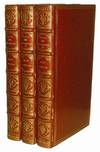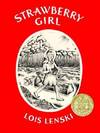![[MANUSCRIPT] Demostración del mísero deplorable estado de las Islas Filipinas,](https://d3525k1ryd2155.cloudfront.net/h/201/994/1514994201.0.m.jpg)
[MANUSCRIPT] Demostración del mísero deplorable estado de las Islas Filipinas,
by Viana, Francisco Leandro de (1730-1804)
- Used
- Hardcover
- Condition
- See description
- Seller
-
Armadale, Victoria, Australia
Payment Methods Accepted
About This Item
de la necesidad de abandonarlas o mantenerlas con fuerzas respetables: de los inconvenientes de lo primero, y ventajas de lo segundo; de lo que pueden producir a la Real Hacienda, de la navegación, extensión, y utilidad de su Comercio: con reflexiones que convencen la utilidad de formar una Compañía vajo Real Protección ... ... Manila, 10 February 1765. Small folio (280 x 210 mm), modern limp vellum; manuscript in ink in a neat late eighteenth-century hand, being a fair copy of a mid eighteenth-century document; ff [1], 125; front fly leaf with later pencilled notes erased; contents clean and fresh, in fine condition; housed in an elaborate half crushed morocco and cloth protective box, morocco title pieces with gilt lettering and ornament to front and spine. Vindel states (in his Catálogo of 1896, p. 94) that the printing of this memorial by Francisco Leandro de Viana was forbidden by the Council of the Indies; hence it was not published in the eighteenth or nineteenth century. The present copy, however, is one of a small number of extant manuscript examples (Museo Naval, Madrid; Archivo General de Indias, Seville; Newberry Library, et al.). The memorial has subsequently been published in English translation in Blair and Robertson XLVIII (pp. 197 ff). 'A near contemporary manuscript copy of an important secret report on the conditions, needs, and potential of the Philippine Islands in 1765, originally written by Francisco Leandro de Viana, fiscal of the Manila Audiencia. The report analyses the Spanish mismanagement of the Philippines, but also reflects upon conditions in Spain and the country's relations with its colonies and with other European nations. Viana's plans for implementing changes in order to establish a major Spanish trading centre in the Philippines were proposed after the conclusion of the two-year British occupation of the islands from 1762 to 1764, following the end of the Seven Years' War. The author writes that the Spanish must either withdraw completely or strengthen their position in the region to take advantage of the commercial possibilities offered by the islands. Viana advocates the latter, proposing immigration from Spain, fiscal and military reforms, increased trade, expansion of the haciendas, and taking advantage of the geographical location of the islands for shipping routes either around the Cape of Good Hope or by way of Panama. The British capture of Manila in 1762 was a bitter blow to Spain, although the city was not thriving at the time. Since the Spanish conquest, Manila had developed to include a great fort and a trading post; it was also a centre of missionary activity in the region. By the mid-18th century, however, the urban centre was stagnating. The anticipated trade of Mexican silver for Chinese silk never came to fruition, half of the Spanish population of the islands belonged to religious orders, and Spanish laws forbade non-Spanish Europeans from trading there. In the text Viana contrasts the stagnant development of the Philippines to the success of the commercially-minded Dutch in the Moluccas. In March 1764, following the Treaty of Paris ending the Seven Years' War, Philippine governor Francisco Xavier de la Torre reached the island of Luzon, bearing orders from London for the English to surrender Manila to him. Viana, a well-educated and able man who had served as a college rector of the University of Salamanca and a member of the royal council, addresses the prologue of the Demostracion, and by extension the report itself, to de la Torre in the latter's capacity of representing the Spanish king Charles III. Later in 1765, de la Torre was replaced by José Raon, whose unscrupulous rule made Viana's position, and his proposals, untenable. Viana appears to have returned to Spain in 1767, where he wrote to the King that his desire to serve the Crown and enact reforms had antagonized those in the Philippines who wished to continue plundering the treasury. The Demostracion, with its outspoken criticisms of both religious and secular authorities, was regarded as inflammatory and its publication forbidden....' (William Reese Company)
Details
- Bookseller
- Douglas Stewart Fine Books
(AU)
- Bookseller's Inventory #
- 38350
- Title
- [MANUSCRIPT] Demostración del mísero deplorable estado de las Islas Filipinas,
- Author
- Viana, Francisco Leandro de (1730-1804)
- Book Condition
- Used
- Quantity Available
- 1
- Binding
- Hardcover
Terms of Sale
Douglas Stewart Fine Books
30 day return guarantee, with full refund including original shipping costs for up to 30 days after delivery if an item arrives misdescribed or damaged.
About the Seller
Douglas Stewart Fine Books
Biblio member since 2022
Armadale, Victoria
About Douglas Stewart Fine Books
Douglas Stewart Fine Books is an antiquarian bookseller based in Melbourne, Australia. We buy and sell books both locally and around the world, working closely with clients to understand their collecting priorities and to source appropriate material. Our clients include libraries, galleries, museums, private collectors and fellow members of the trade.
Douglas began buying and selling books in 1995, while still in high school. He is a member of the major international trade associations, and his business is conducted according to their high ethical standards. For many years Douglas has been a Board member of the Australian and New Zealand Association of Antiquarian Booksellers (ANZAAB); he is also a Mentor for the International League of Antiquarian Booksellers.
Douglas is currently the President of ANZAAB.
Our stock at Douglas Stewart Fine Books is diverse: we have rare books across all fields, but our strengths are in travel and exploration – particularly of Australia and the Pacific – and Australian art. In addition to rare books, we deal in all types of heritage material, including photographs, manuscripts, maps and globes, and fine art. Every month we issue a new online catalogue of New Acquisitions, and recommend that you join our email list to be the first to see what's available. Please do not hesitate to contact us regarding any works you see online – we are always happy to assist with your enquiries.
We love meeting new people and welcome visitors to our shop, which is open six days a week. If you cannot make it to Melbourne, you can find us at major fairs in London, New York, Los Angeles, Amsterdam, Toronto, San Francisco, Boston, Hong Kong or Sydney. We're pleased to invite you to any of these exhibitions as our guest.
Last, but not least, we buy books – from important single items to entire libraries – and we'd be pleased to provide advice on the best way to sell your collection.
Douglas Stewart Fine Books
Douglas began buying and selling books in 1995, while still in high school. He is a member of the major international trade associations, and his business is conducted according to their high ethical standards. For many years Douglas has been a Board member of the Australian and New Zealand Association of Antiquarian Booksellers (ANZAAB); he is also a Mentor for the International League of Antiquarian Booksellers.
Douglas is currently the President of ANZAAB.
Our stock at Douglas Stewart Fine Books is diverse: we have rare books across all fields, but our strengths are in travel and exploration – particularly of Australia and the Pacific – and Australian art. In addition to rare books, we deal in all types of heritage material, including photographs, manuscripts, maps and globes, and fine art. Every month we issue a new online catalogue of New Acquisitions, and recommend that you join our email list to be the first to see what's available. Please do not hesitate to contact us regarding any works you see online – we are always happy to assist with your enquiries.
We love meeting new people and welcome visitors to our shop, which is open six days a week. If you cannot make it to Melbourne, you can find us at major fairs in London, New York, Los Angeles, Amsterdam, Toronto, San Francisco, Boston, Hong Kong or Sydney. We're pleased to invite you to any of these exhibitions as our guest.
Last, but not least, we buy books – from important single items to entire libraries – and we'd be pleased to provide advice on the best way to sell your collection.
Douglas Stewart Fine Books
Glossary
Some terminology that may be used in this description includes:
- Fair
- is a worn book that has complete text pages (including those with maps or plates) but may lack endpapers, half-title, etc....
- Gilt
- The decorative application of gold or gold coloring to a portion of a book on the spine, edges of the text block, or an inlay in...
- Cloth
- "Cloth-bound" generally refers to a hardcover book with cloth covering the outside of the book covers. The cloth is stretched...
- Fine
- A book in fine condition exhibits no flaws. A fine condition book closely approaches As New condition, but may lack the...
- Spine
- The outer portion of a book which covers the actual binding. The spine usually faces outward when a book is placed on a shelf....
- Folio
- A folio usually indicates a large book size of 15" in height or larger when used in the context of a book description. Further,...
- Morocco
- Morocco is a style of leather book binding that is usually made with goatskin, as it is durable and easy to dye. (see also...

